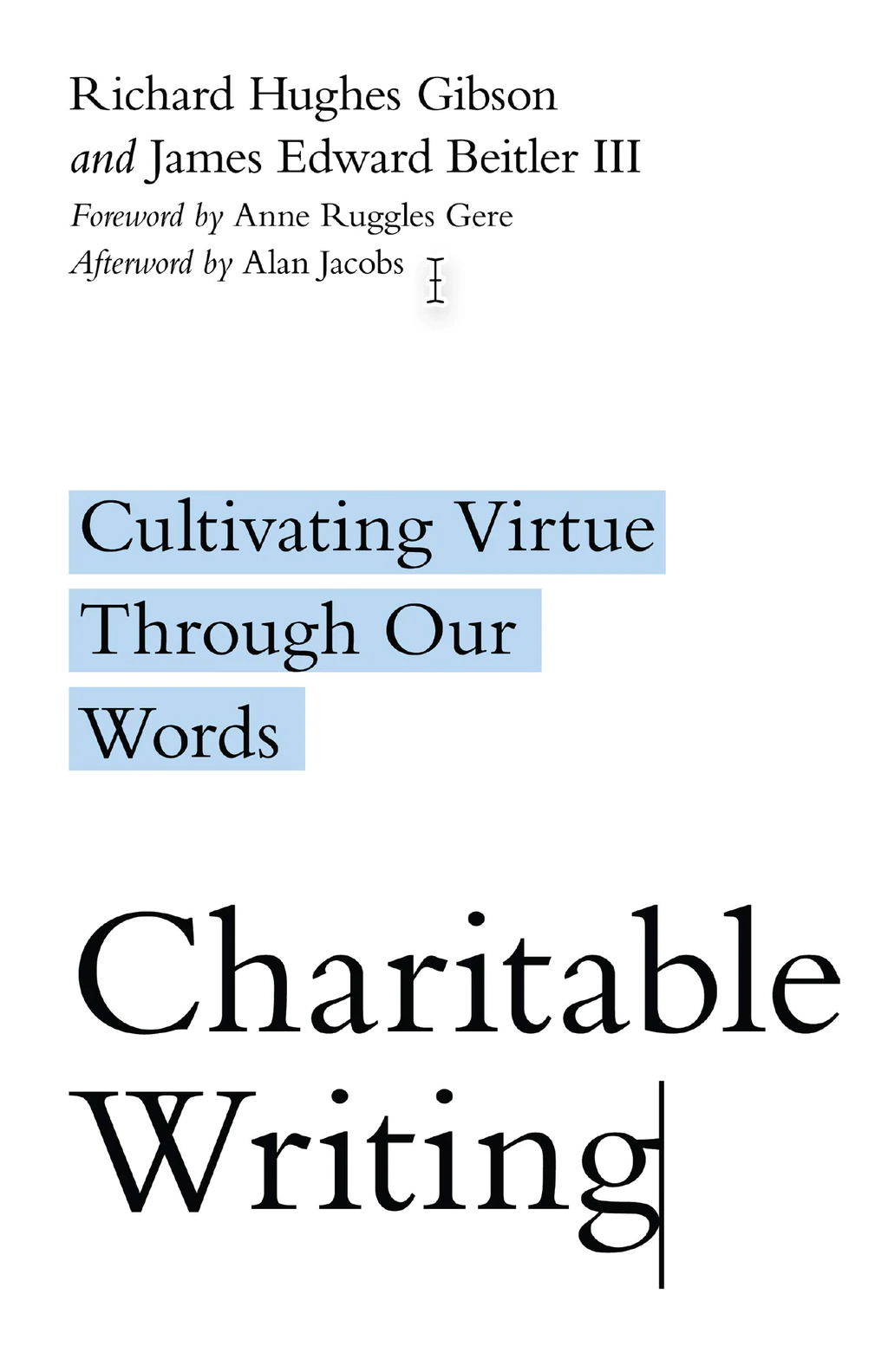
Richard Hughes Gibson and James Edward Beitler III
Reviewed by: Judith Dinsmore
Charitable Writing: Cultivating Virtue Through Our Words, by Richard Hughes Gibson and James Edward Beitler III. IVP Academic, 2020. Paperback, 248 pages, $15.27 (Amazon). Reviewed by New Horizons managing editor Judith Dinsmore.
The central claim of this book is “that charitable writers listen humbly, argue lovingly, and keep the time of writing hopefully” (13). The authors, professors at Wheaton College, reimagine the writing process as flowing directly from Christian virtue. Building explicitly on James K. A. Smith’s understanding of virtue—that it is developed by imitation and practice—the authors provide examples of how these virtues have undergirded Christians’ approaches to writing before then suggesting ways to practice them.
Their threefold vision has a slow start, as the authors present not only a host of sources from the field of writing and the annals of church tradition, but also a gallery of images from altarpieces, cathedrals, mosaics, and more. As the book progresses, however, it dishes out insights with a free hand, and those insights are sometimes as applicable to pastors, teachers, professional communicators, and even social media users as they are to the authors’ primary audience: writing students. (Questions for classroom use are included.)
Listening humbly, for the authors, includes not just verbal conversation but the written conversation between specialists in any given field. Listening includes “reading with great care” (58). They point out that humility is not a bonus but a necessity if one would receive and learn from criticism. Reading or listening to others’ creations with humility in turn allows the import to settle fully before one responds. The application to the proper posture of a church congregant is an easy jump.
The final section, on keeping time hopefully, advocates slowing down the writing process to beget carefulness, and explains that researching, drafting, and revising can all be expressions of hope. This section seems to be responding to the problems of a digital age, but without space to develop those problems, the recommendations appear scattershot.
It is the book’s second section, on loving argument, that is by far the most compelling. The authors claim that our culture’s very concept of argument is misbegotten: “many people understand ‘argument’ in terms of winning and losing, victory and defeat” (84). They challenge writers to develop a new metaphor for argument to replace victory/defeat—a metaphor that flows from a distinctly Christian love, and they offer for consideration the metaphor of feasting. “The cooking that most of us do is not part of a contest. Rather, we labor to nourish our bodies and those of others. Dinner is not won. It is served” (92). Are our words weapons? Or gracious, seasoned with salt? (Col. 4:6).
Few Reformed Christians would question the important role of argument in coming to a better understanding of what is true. But the authors are surely right that demolishing a rhetorical opponent in order to emerge victorious from the word-fight, especially before onlookers, hardly smacks of charity. It looks more like pride.
April 27, 2025
The Devoted Mind: Seeking God’s Face in a World of Distraction
April 20, 2025
April 13, 2025
Suffering: God’s Purpose in Our Pain
April 06, 2025
Sunday Matters: 52 Devotionals to Prepare Your Heart for Church
March 30, 2025
On the Trail with a Missionary
March 23, 2025
Midnight Mercies: Walking with God Through Depression in Motherhood
March 16, 2025
© 2025 The Orthodox Presbyterian Church